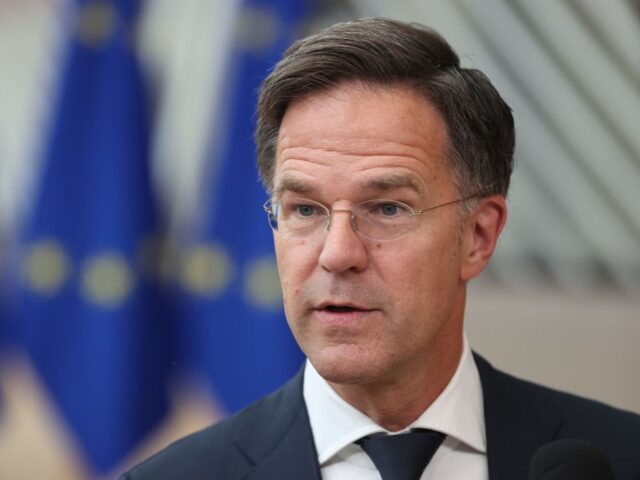Outgoing Dutch Prime Minister Mark Rutte, so spectacularly rejected by his own voters in last year’s elections, has been confirmed as the next Secretary General of NATO, and will take up the post later this year.
Mark Rutte, who fell from grace in the Netherlands over the migration crisis and his aggressively unwavering implementation of European Union green directives that critics said would have destroyed Dutch agriculture, will be the next Secretary General (SG) of the North Atlantic Treaty Organisation (NATO). The departure of Jens Stoltenberg in October, after his term was extended, will come at a critical time for the defensive alliance after it became massively involved in the defence of a non-member state, Ukraine, from Russian aggression.
When his term ends later this year, Stoltenberg will have been Secretary General for ten years, the longest of any SG since the end of the Cold War.
Rutte’s appointment appears to confirm the emerging 21st century norm that Secretary Generals of NATO are the former Prime Ministers of small northern European countries. He will be the fourth Dutch NATO leader, meaning the country will have had more SGs than any other NATO state.
Stoltenberg wrote of his successor on Wednesday: “Mark is a true transatlanticist, a strong leader and a consensus-builder. I wish him every success as we continue to strengthen NATO. I know I am leaving NATO in good hands.”
Indeed, while Rutte is unmistakably part of the elite European centrist-globalist managerial class and pursued the European agenda as the Prime Minister of the Netherlands to the very breaking point of the electorate, he is also regarded as a “Trump whisperer” who gets along well with the man who may be the next U.S. President. As previously reported:
While the men may not agree on their political views, Rutte has been diplomatic towards Trump in the past and even chided other European leaders for their non-stop criticism of the former President.
In 2019, Rutte said he felt annoyed by the “white wine-sipping elite” who rolled their eyes at Trump’s criticism of bodies like NATO, saying the President was right to point out they had problems and needed to improve… [Rutte] pointed out that, in fact, the former President was right to point out how little some European states pay for their defence, in defiance of their NATO treaty obligations. Amid the news cycle of commentators losing their heads over Trump’s latest NATO comments, which as a report at the time noted the more grounded leaders realised should be taken “seriously but not literally”, Rutte had said “We should stop moaning and whining and nagging about Trump”.
Rutte has been a very long-serving Dutch Prime Minister, and remains in the post in a caretaker role after his party suffered a defeat in November 2023. The shift to the right-populism of anti-mass-migration and anti-Islamism leader Geert Wilders was hailed by him at the time as a “mega victory”. As is normal for Dutch elections, seven months later the coalition of victorious parties are still working to form a new government. As well as Wilders’ freedom party rejecting Rutte’s globalist open-borders policies coming in first, the Netherlands’ new Farmers Party — rejecting his Euro green policies — are also playing a major role.
The Ukraine war remains the number-one agenda item for NATO as it hands over leaders, and the selection of Rutte is a clear sign there are no changes on its long-stated intention to absorb the country into the alliance on the horizon. Rutte has been a top backer of Ukraine during his time at the head of Dutch politics, including handing over his nation’s F-16 fighters for the Ukrainian air force.

COMMENTS
Please let us know if you're having issues with commenting.